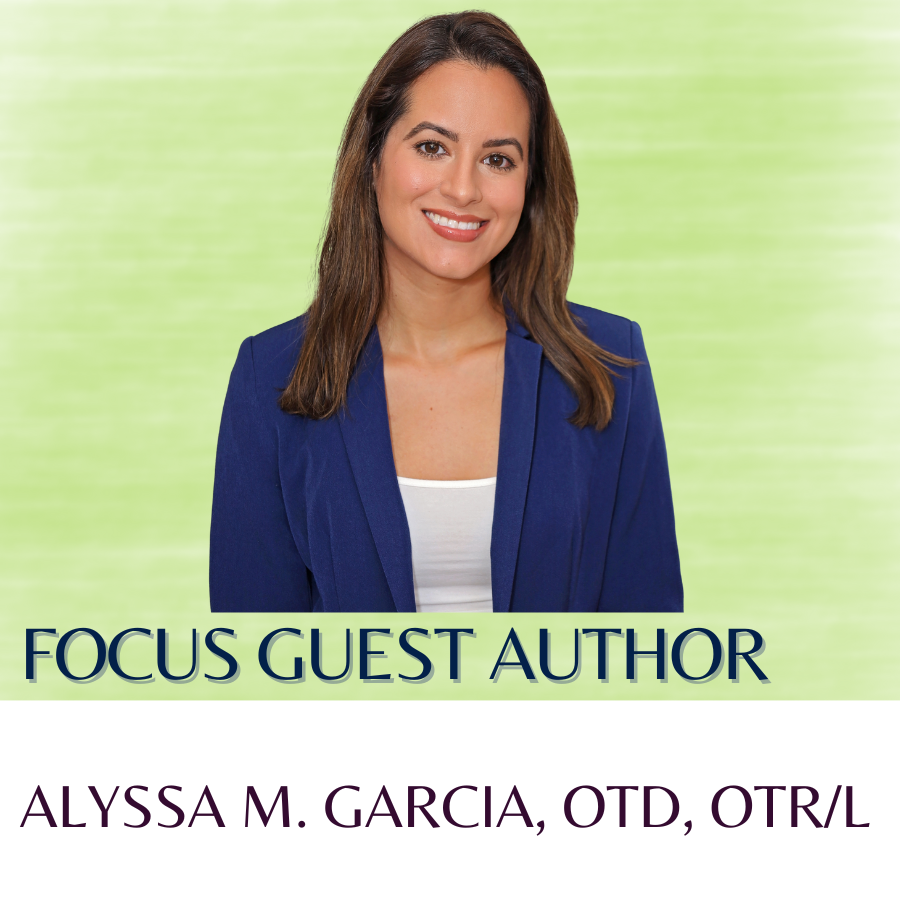 OT’s Role in Firefighter Mental Health
OT’s Role in Firefighter Mental Health
Alyssa M. Garcia, OTD, OTR/L
 OT’s Role in Firefighter Mental Health
OT’s Role in Firefighter Mental Health
Alyssa M. Garcia, OTD, OTR/L
 Occupational Therapy Gives a Smile for Life
Occupational Therapy Gives a Smile for Life
FLOTEC submission
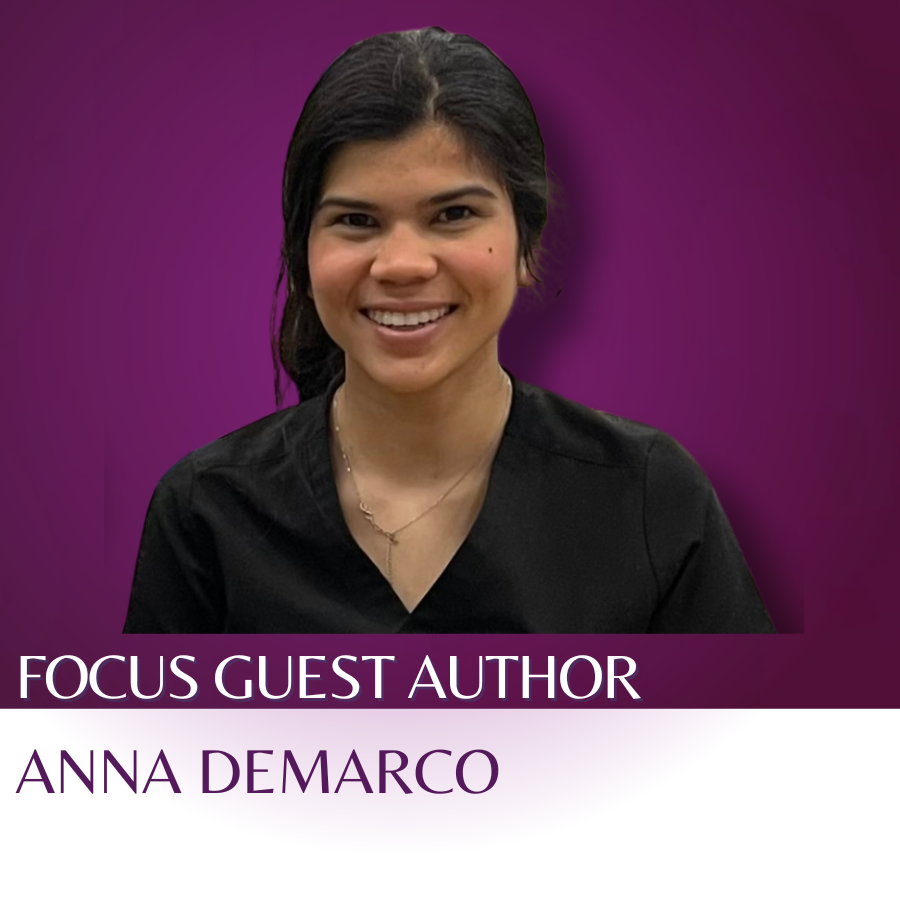 Improving Patient Safety in Occupational Therapy
Improving Patient Safety in Occupational Therapy
Anna DeMarco
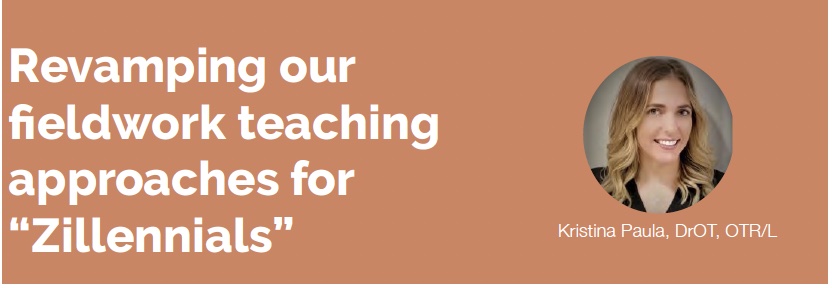
Have you ever spoken to fieldwork students and felt like it went in one ear and out the other? Well maybe because it has. Let’s take a step back and consider it from the student’s learning perspective; it is not due to their unwillingness to learn. Most universities have adopted an adult learning style to meet the learning needs of students from younger generations, however, fieldwork educators may continue to use the same teaching strategies from previous generations. As these students’ learning styles have evolved, we cannot continue to propose the same teaching styles we used 15, 10, or even 5 years ago. As occupational therapists, we adapt our therapeutic use of self to meet the individual needs of our clients. Fieldwork educators must also adjust our therapeutic use of self to enhance our interactions with fieldwork students for their learning experience.
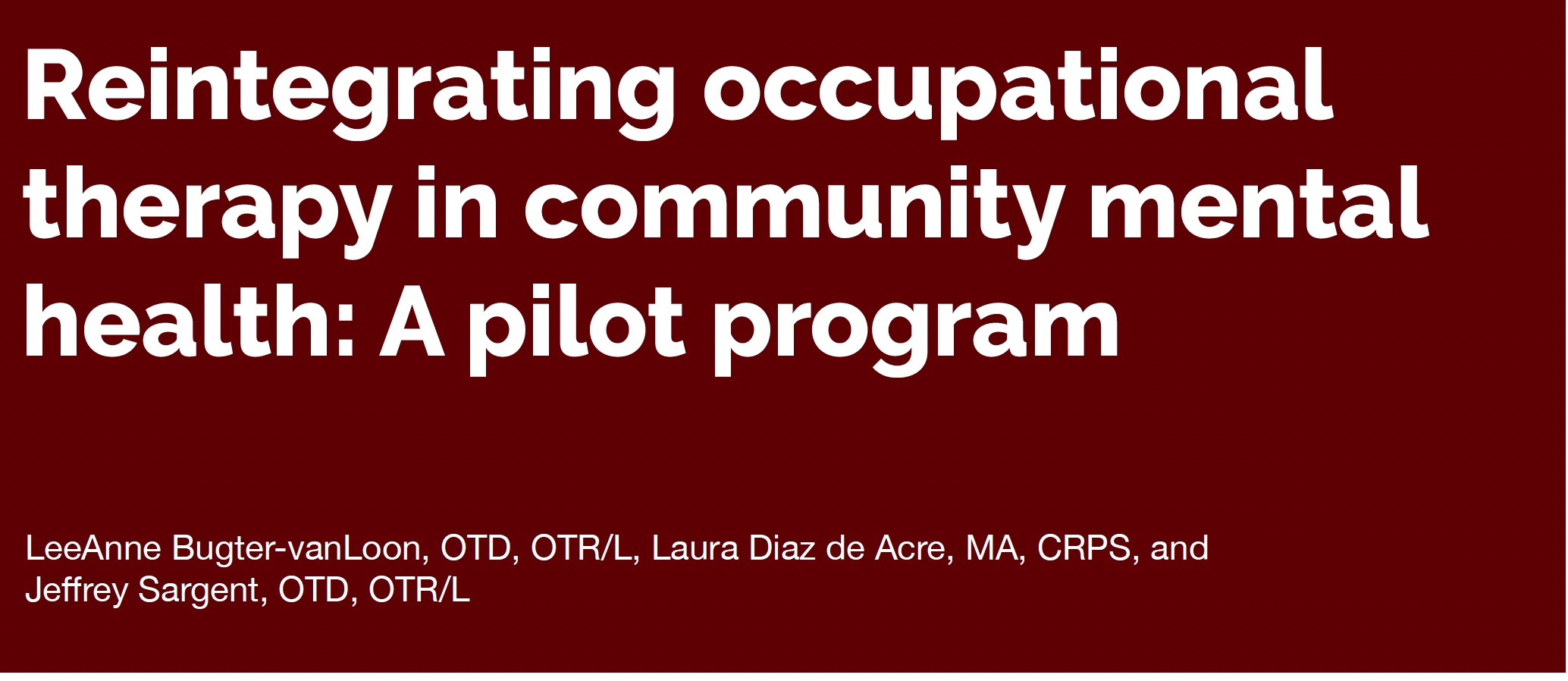
Current community-based mental health services in the state of Florida are sparse and focused on targeted areas, such as medication management, psychiatric services, trauma-based support groups, and day programming. Few programs or services facilitate community re-integration, and those that do, rely mainly on peer support services. The current continuum of care is not always able to account for the far-reaching effects of mental health and substance abuse issues and how they create obstacles to daily living and community participation. In Florida, mental health, substance abuse, and co-occurring disorder programs are under strain from a lack of funding. According to the State of Florida Appropriations Committee 2021 Annual Budget, only 7% of the allotted 3.8 billion dollars of funding to the Department of Children and Families is designated for community mental health and substance abuse services (The Florida Senate, 2022). These funds must stretch across all the programs and other related services. Funding for occupational therapy services is largely non-existent in these programs, despite a long history of treating this population. Occupational therapists (OTs) receive specialized education and clinical training to address areas within the continuum of community reintegration for clients experiencing mental health and co-occurring disorders. OTs can apply theory and conceptual models of practice stemming from a rich occupational science history to enable successful improvements in occupational participation and performance.
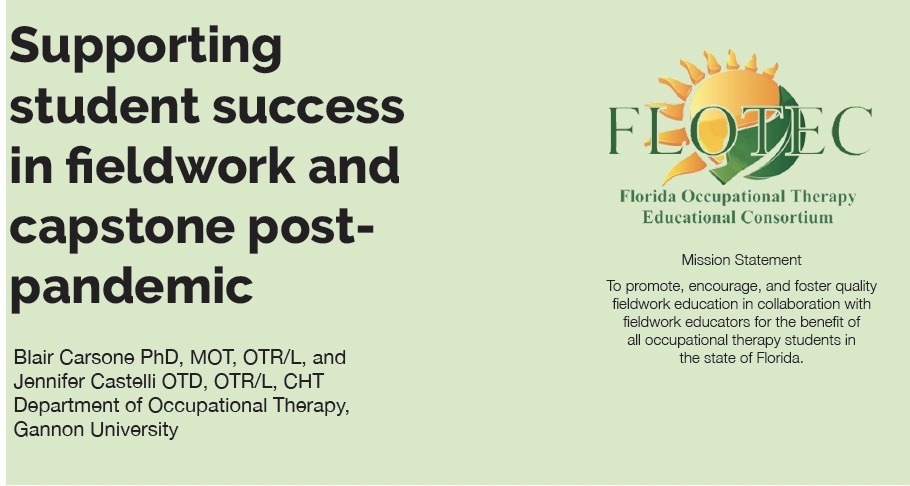
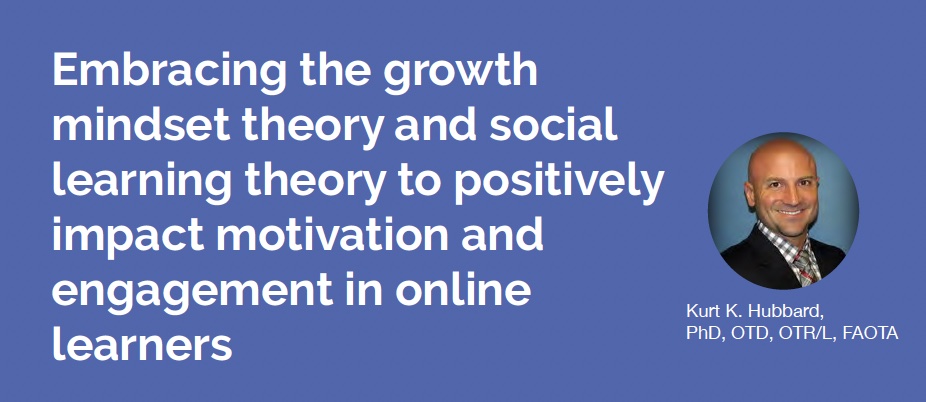
Online education refers to a learning process in which at least 80% of the course content is delivered via an online learning platform (Yeboah, Dogbey, & Smith, 2016). Hybrid education is a curriculum that has at least 50% of their delivery online. Increasingly, OT entry level programs are being delivered using hybrid curriculum. In addition, post-professional OT programs are primarily online in education delivery. According to the literature, enrollments in online education have grown rapidly in the past decade throughout postsecondary education (Jaggars, 2014). This growth offers learners opportunities, but also presents challenges for learners enrolled in online courses. For instance, despite the rapid growth in enrollment for online distance education courses, learner persistence and academic performance in online courses is often much lower than in traditional non-online courses (Croxton, 2014). Furthermore, according to Kauffman (2015), attrition rates remain high for online education courses as compared to traditional non-online distance education courses. Online education research studies have identified internal factors that lead to the underperformance for online learners (Croxton, 2014). These internal factors include lack of motivation, challenges with self-determination, and issues with not experiencing online engagement (Croxton, 2014). To this end, online college students who experience the least amount of motivation and engagement are said to be at a greater risk of dropping out (Pruett & Absher, 2015). It is of interest to identify ways the faculty can have an essential role in improving the motivation and engagement of online learners moving forward.
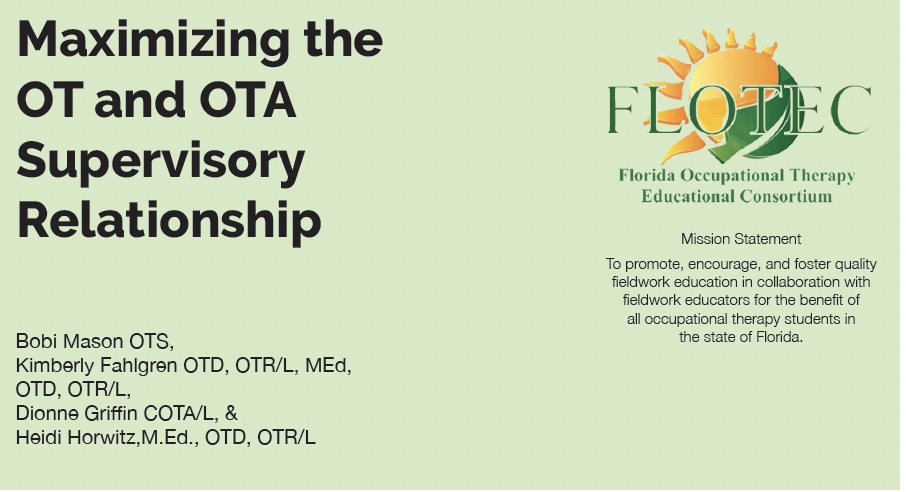
The Accreditation Council for Occupational Therapy Education (ACOTE®) standards and the Standards of Practice for Occupational Therapy identify the collaborative roles of OT/ OTA intraprofessional responsibilities (Accreditation Council for Occupational Therapy Education [ACOTE], 2018; American Occupational Therapy Association [AOTA], 2020, 2015). According to the American Occupational Therapy Association (AOTA, 2022), there are 16 occupational therapy and 20 occupational therapy assistant programs in Florida. The 2022 U.S. Bureau of Labor and Statistics Occupational Outlook Handbook reports 6,770 occupational therapists and 2,550 occupational therapy assistants licensed in Florida (U.S. Bureau of Labor Statistics, 2022). The employment rates for occupational therapy practitioners are growing exponentially, with an expected increase of 24% for OTAs and OT aides and 14% for OTs by 2031 (U.S. Bureau of Labor Statistics, 2022). With the growing demand for occupational therapy practitioners, the profession must ensure that OT and OTA students and practitioners have the knowledge and skills to promote quality supervisory and collaborative relationships to ensure best practices for our clients. This process should start in the educational environment.
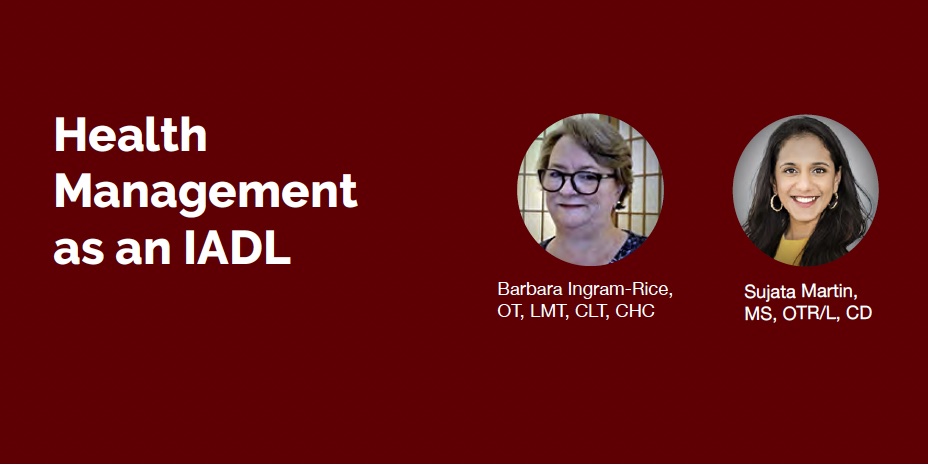
The updated Florida Occupational Therapy Practice Act defines health management as “therapeutic services designed to develop, manage, and maintain health and wellness routines” (The Florida Legislature, 2022). The American Occupational Therapy Association also de- fines it as an instrumental activity of daily living (IADL) in the Occupational Therapy Practice Framework (American Occupational Therapy Association [AOTA], 2020). The goal of health management is to improve or maintain health to support participation in occupations. The categories of health and wellness can be broken down into the following categories (AOTA, 2022):
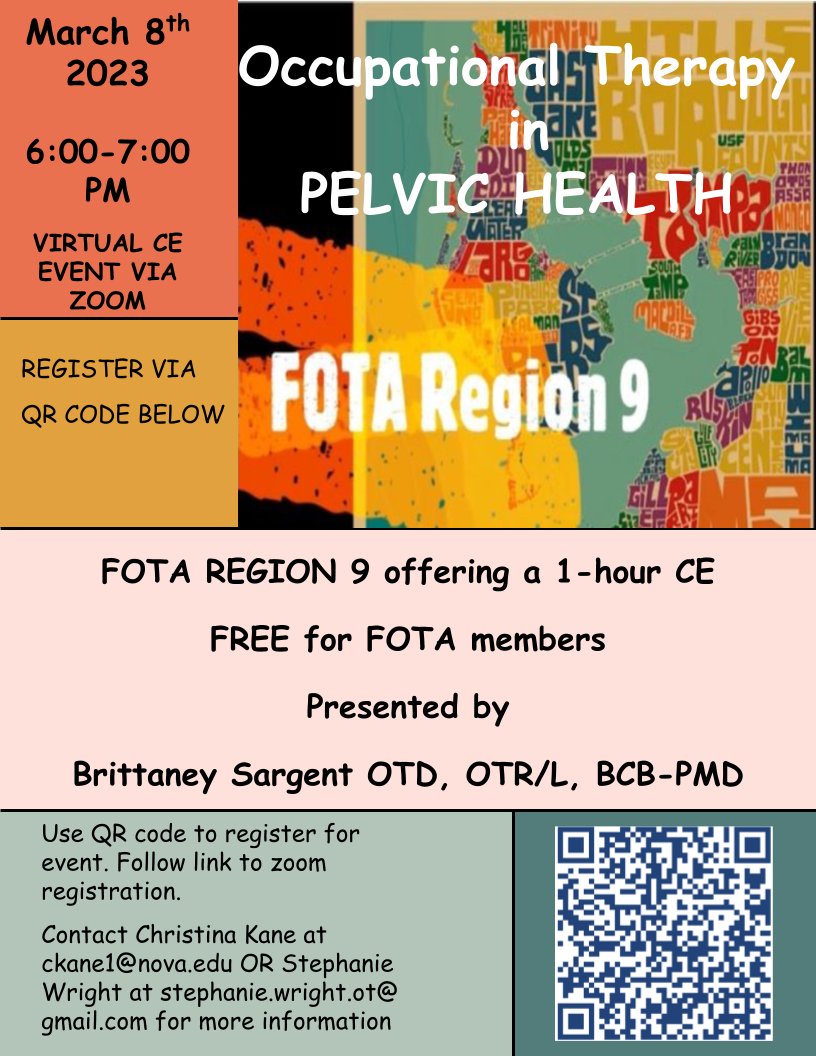

Eligible providers will have 60 days to complete the application for funding. Providers must apply by February 14, 2022.
Shirish Lala, EdD(c), MHS, OTR/L Academic Fieldwork Coordinator Daytona State College
The pursuit of acquiring literacy is intentional, purposeful, and deictic, and subject to change based on the contextual demands (Leu, Kinzer, Coiro, Castek, & Henry, 2013). Literacy can be loosely defined as a construct that provides an individual with the ability to read, write, and integrate information across a broad range of platforms in order to identify, recognize, and implement knowledge for the purpose of personal,social, or financial gain. The U.S. Department of Health and Human Services describes health literacy (HL) as “the degree to which individuals have the capacity to obtain, process, and understand basic health information and services needed to make appropriate health decisions” (National Network of Libraries of Medicine [NNLM], 2011). However, according to the Centers for Disease Control, low HL is a serious public health issue affecting nine out of every ten adults (Centers for Disease Control [CDC], 2018a). At least 50% of the adults without high school education are at risk for experiencing severe health crises including medication errors, increased hospital visits, higher mortality, and greater health expenditure as compared to those with adequate HL levels (Brach et al., 2012).
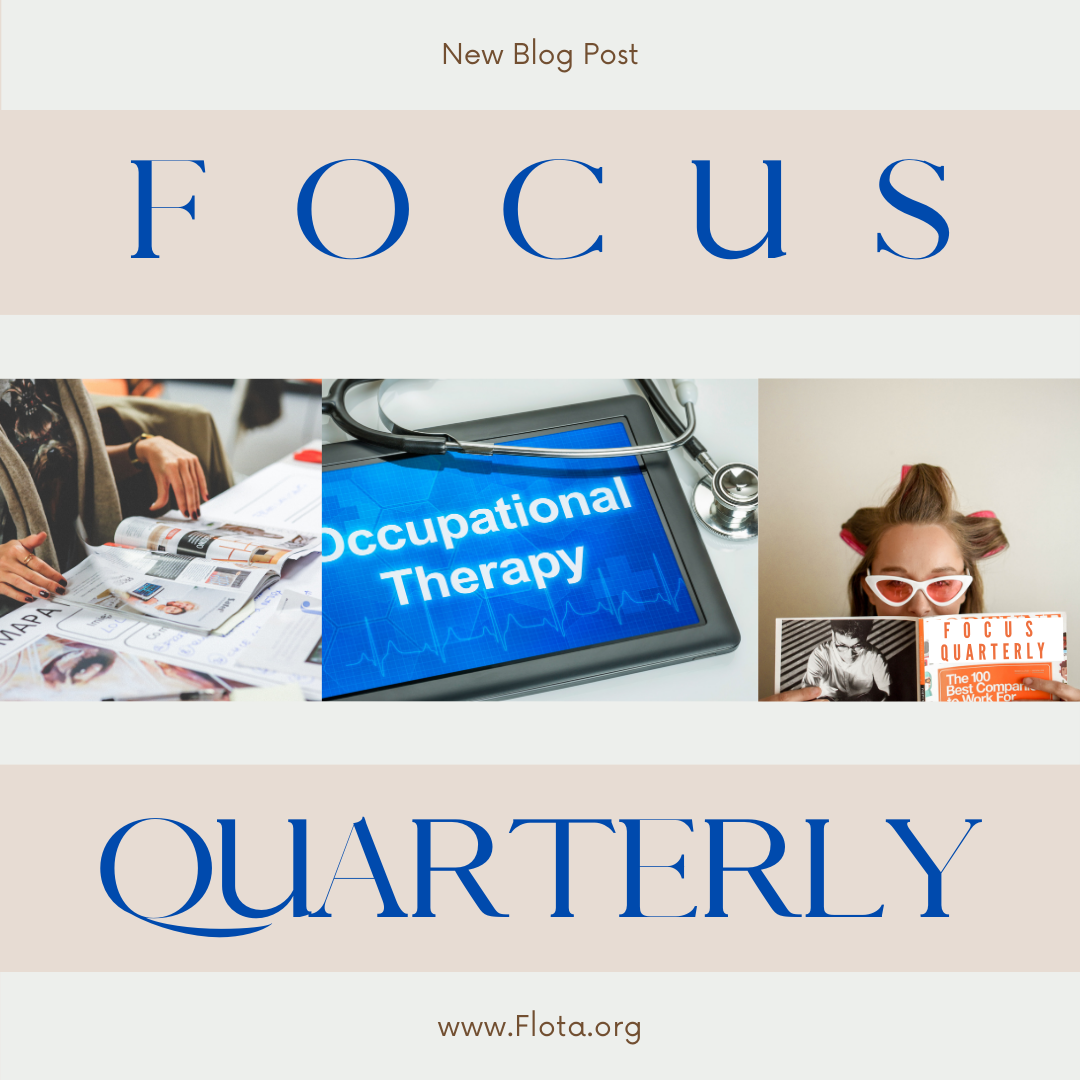
FOTA Boosts Quarterly Publication
In a persistent move towards meeting the needs of its membership and readers, FOCUS, the official publication of the Florida Occupational Therapy Association (FOTA) has been renamed The FOCUS Quarterly. The Author’s Guidelines have been adapted to include formal review of submitted materials, and inclusion of a variety of opportunities for the novice and seasoned writers in the community of occupational therapy and collaborating partners.
Hello,
Just a reminder that there is now a requirement for a Human Trafficking CE
Amazon searches starting from www.flota.org benefit FOTA!